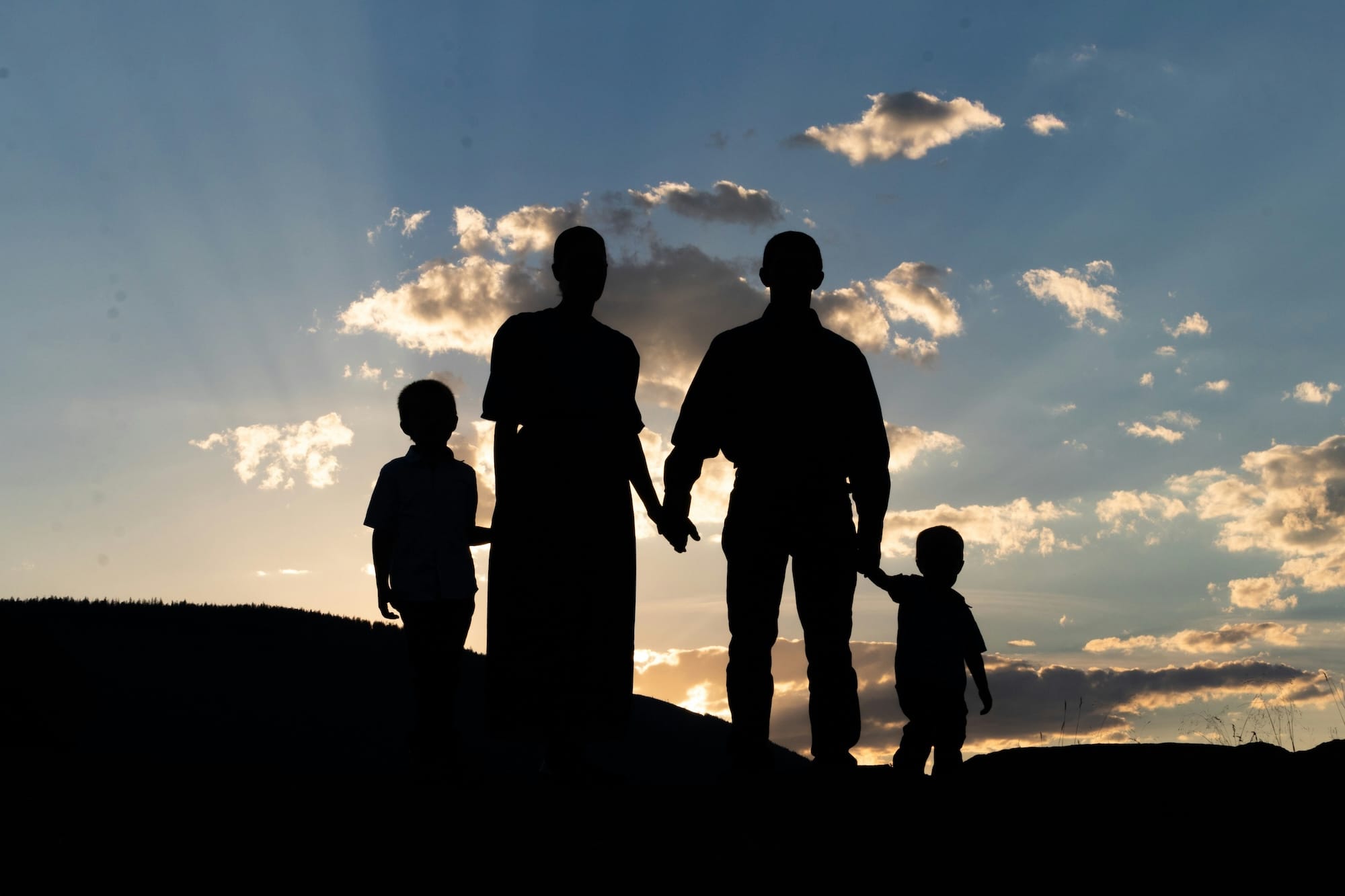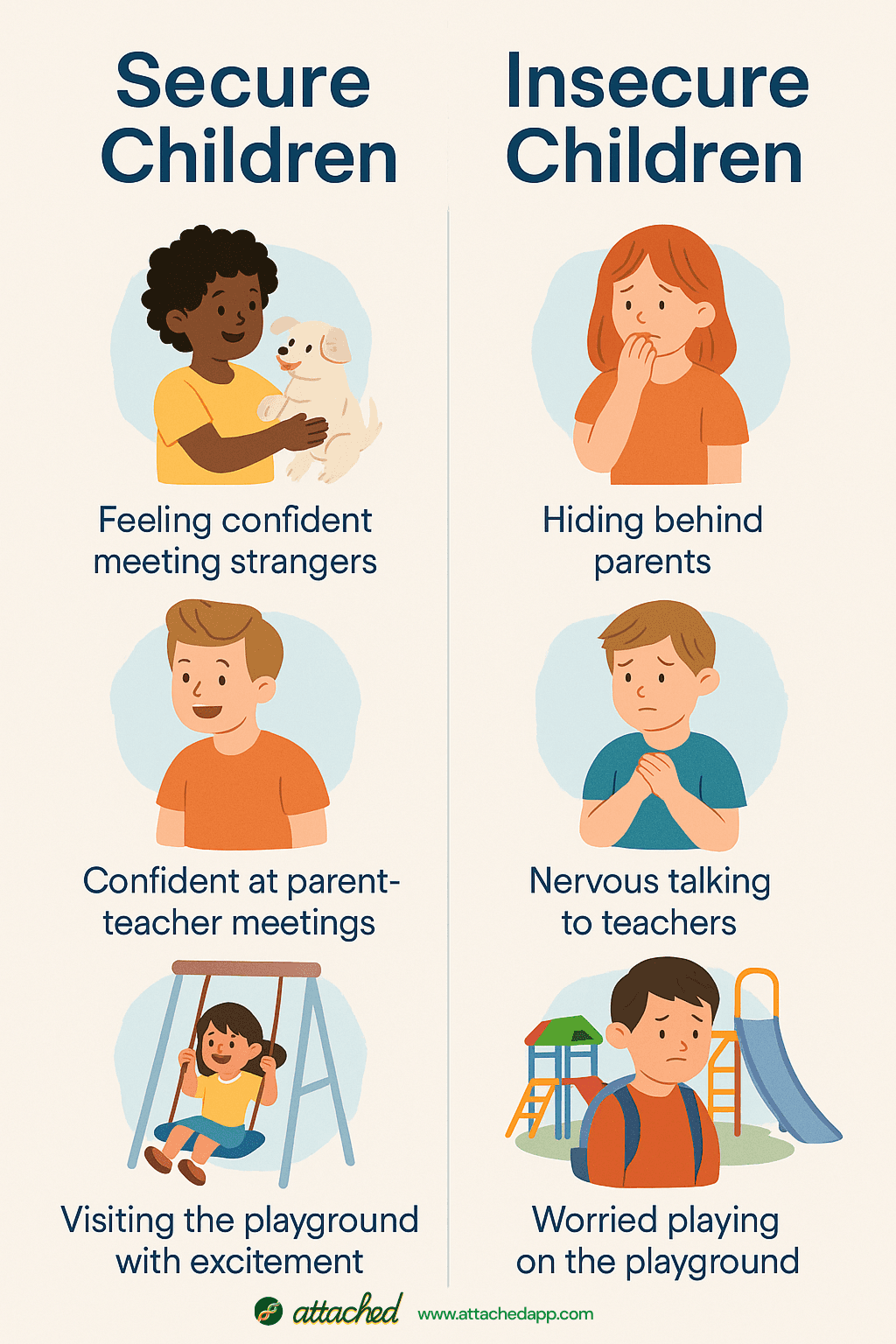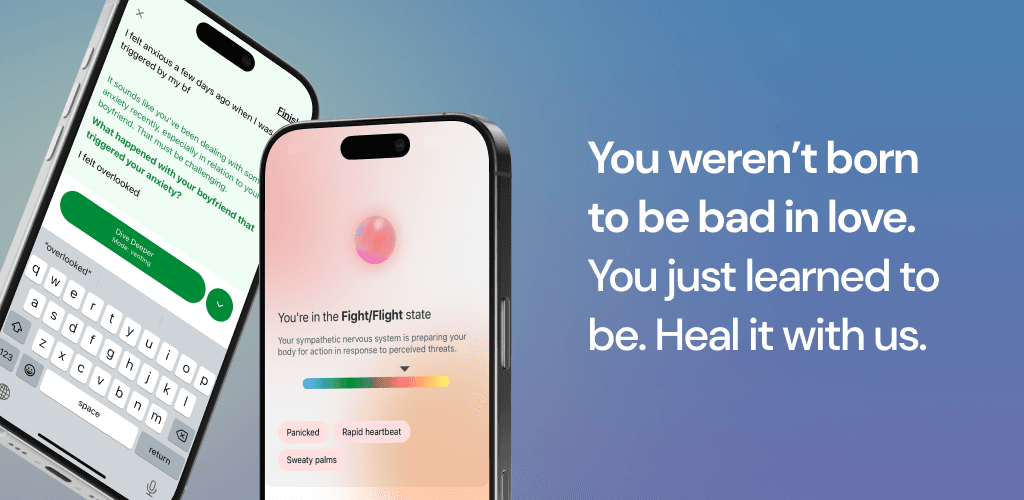How to Raise Secure Children if You Don't Have a Secure Attachment Style

How to Raise Secure Children if You Don't Have a Secure Attachment Style
You want to do better.
You want your child to feel safe, loved, and confident in a way you never did.
Because you don't want them to repeat your mistakes.
But sometimes you snap. You shut down. You feel overwhelmed by their emotions, because you were never taught how to handle your own.
If you grew up with anxious, avoidant, or chaotic love, the thought of raising a securely attached child can feel impossible.
Here's the truth: You don't need to be perfect. You just need to be present, aware, and willing to grow.
Secure vs. insecure children: what's the difference?
Attachment isn't just about how your child clings to you at daycare—it shapes how they see themselves and the world for life. The way you respond to their needs now lays the foundation for how they handle emotions, relationships, and stress as adults.
Securely attached children
- As Kids:
-
- Confident when meeting new people or joining group activities
- Ask questions in class and share their ideas without fear
- Can separate from parents at school without major distress
- Show empathy and respond well to others' emotions
- Bounce back after failure or disappointment
- Able to accept praise and constructive feedback
- As Adults:
-
- Feel confident in job interviews and new social settings
- Comfortable asking for help or expressing needs in relationships
- Can be vulnerable without fear of rejection
- Trust partners without needing constant reassurance
- Handle breakups or conflict without spiraling
- Set healthy boundaries without guilt
- Believe they are worthy of love—even during hard times
Insecurely attached children

There are different insecure styles, but common patterns include:
- Anxious Kids:
-
- Get upset easily when separated from caregivers
- Constantly seek approval from teachers and peers
- Fear being left out or rejected in group settings
- Struggle to focus in class due to worry or overthinking
- Overreact to small conflicts or misunderstand neutral tones as rejection
- May act "clingy" or overly eager to please
- Fear being abandoned or unloved
- Clingy, overly dependent on reassurance
- Easily overwhelmed by separation or stress
- Avoidant Kids:
-
- Say "I'm fine" even when they're clearly upset
- Avoid asking for help in school—even when they need it
- Act overly independent or emotionally distant
- Struggle to express sadness or fear
- May come off as "shy" or "withdrawn," especially in groups
- Keep problems to themselves, leading to emotional shutdowns
- Anxious Adults:
-
- Feel intense anxiety if their partner pulls away or texts late
- Constantly second-guess their worth in friendships or romantic relationships
- Over-apologize or people-please to avoid rejection
- Fear being abandoned or replaced, even without real signs
- Struggle with emotional ups and downs, especially in love
- Need constant validation to feel secure
- Overthink texts, tone, and minor changes in others' behavior
- Avoidant Adults:
-
- Feel uncomfortable when things get emotionally "deep"
- Pull away or shut down during conflict
- Keep relationships casual or "safe" to avoid vulnerability
- Prefer handling problems alone instead of relying on others
- Avoid commitment or feel smothered in long-term relationships
- Downplay their own needs, then silently resent not being understood
- Seem independent—but may struggle to truly connect
What if you didn't have a good example growing up?
Maybe your parents yelled. Maybe they disappeared emotionally. Maybe love always came with tension, silence, or strings attached.
Now, you're the parent, and you're scared of repeating the cycle.
If you have an anxious attachment, you might:
- Worry your child doesn't love you back
- Feel hurt or rejected by their independence
- Struggle to stay calm when they're upset
If you have an avoidant attachment, you might:
- Shut down when your child needs too much
- Feel smothered by their emotions
- Numb out to avoid conflict
None of this makes you a bad parent. It means you're patterned—and patterns can change.
Step one: look at your relationship first
Before we talk parenting, let's talk partnership.
Children learn what love looks like from watching you and your spouse. If there's constant conflict, distance, or anxious-avoidant dynamics, they absorb that as normal.
In fact, research confirms that children model their emotional regulation, communication, and relational behaviors after the adults closest to them—especially parents.
A 2022 study found that both maternal and paternal behaviors significantly influenced whether children developed secure or insecure attachment styles (Antonucci et al., 2022).
Ask yourself:
- Do we argue in front of them without resolution?
- Do I feel heard in this relationship, or always like I'm chasing connection?
- Am I teaching them that love is safe, or that love equals tension?
Raising secure kids starts by building more secure dynamics between parents—through calm communication, respect, and emotional presence.
What is earned secure attachment?
Good news: you don't need to have secure attachment to become a secure parent.
It's called earned security, and it happens when you:
- Reflect on your patterns
- Regulate your own emotions
- Repair when you mess up
- Show up for yourself again and again
You don't need to never yell. You just need to say, "I'm sorry I raised my voice. You didn't deserve that."
That repair is the healing.
Studies have shown that parents with earned secure attachment are just as likely to raise securely attached children as those with naturally secure attachment—as long as they are emotionally responsive and willing to engage in repair and growth (Flaherty & Sadler, 2011).
How to raise secure kids (even if you're still healing)
Here are simple ways to raise securely attached kids—even if you're still working on your own triggers:
1. Help Them Name Big Feelings
Say things like:
- "I see you're really mad right now."
- "It's okay to feel sad. I'm here."
This teaches emotional language and co-regulation.
2. Regulate Yourself First
Before reacting, pause and breathe. Ask:
- "Am I triggered because of them—or something old inside me?"
- "Can I calm my body before I speak?"
3. Narrate and Normalize Emotions
Let your child hear things like:
- "I was really stressed today, so I needed a break. But I still love you."
- "It's okay to cry. I cry sometimes too."
This models emotional honesty and safety.
4. Set Clear and Kind Boundaries
Being secure doesn't mean saying yes all the time.
- "I hear that you want to play more, but now it's bedtime."
- "I love you. And I need quiet right now."
Boundaries show that relationships can hold both connection and limits.
5. Apologize and Repair
Mess up? Welcome to being human. Say:
- "I'm sorry. That wasn't fair."
- "I was wrong, and I'll do better."
That moment is secure parenting.
Begin your secure future now, with the Attached app
You don't need to be a perfect parent.
You don't need to heal everything before showing up.
You just need to be honest, curious, and willing to try again.
Raising secure kids isn't about having a perfect past.
It's about choosing to create a safer future—one connection, one repair, one deep breath at a time.
The No.1 app to become more secure, so you can become happy and free — backed by attachment science.
The Attached app helps make this process easier with:
- Daily Quests for habit-building
- Help Mode for tough emotional moments
- AI Journal to find hidden emotional patterns
- Weekly Coaching from Eden, your relationship guide
Download Attached for free and start working toward stronger emotional security.

References
- Lyu, X. (2023). A Literature Review of How Children Secure Attachment Predict Better Academic Performance. Journal of Education, Humanities and Social Sciences. https://scispace.com/papers/a-literature-review-of-how-children-secure-attachment-1yhnsrk0
- Antonucci, L. A., Musso, P., Taurisano, P., Coppola, G., Terlizzi, M., & Cassibba, R. (2022). A Combination of Maternal and Paternal Features Discriminates Between Children with Secure and Insecure Attachment Style. Psicologia. https://scispace.com/papers/a-combination-of-maternal-and-paternal-features-2d6j5h8c
- Flaherty, S. C., & Sadler, L. S. (2011). A Review of Attachment Theory in the Context of Adolescent Parenting. Journal of Pediatric Health Care. https://scispace.com/papers/a-review-of-attachment-theory-in-the-context-of-adolescent-2mo4p5ujba
- Urban, J. R. (2020). Attachment Theory and Its Relationship with Anxiety. The Kabod, Vol. 6, Iss. 2. https://scispace.com/papers/attachment-theory-and-its-relationship-with-anxiety-2krlyt5at0
- Harris, J. C., & Coyle, J. T. (2024). Attachment Security Disorders. In Handbook of Developmental Disorders. https://scispace.com/papers/attachment-security-disorders-4hwvd1yn7uw0
